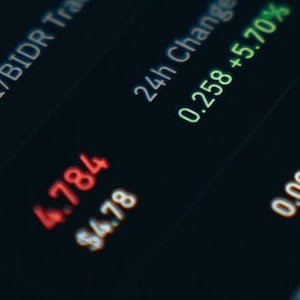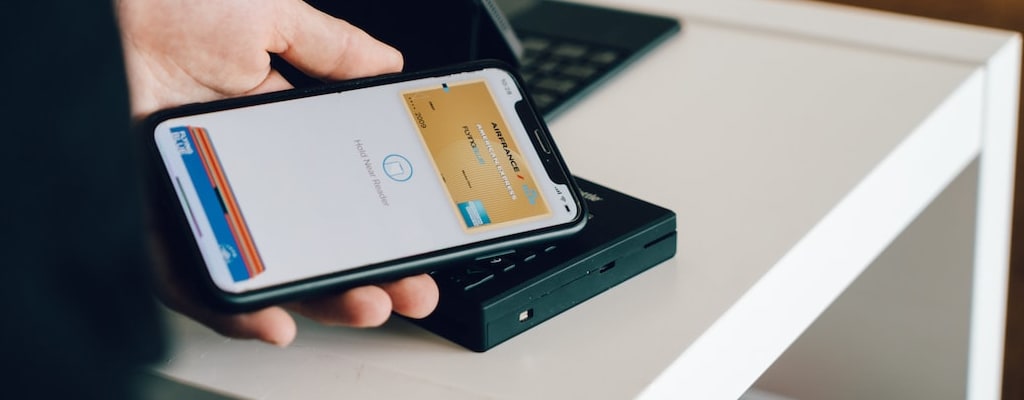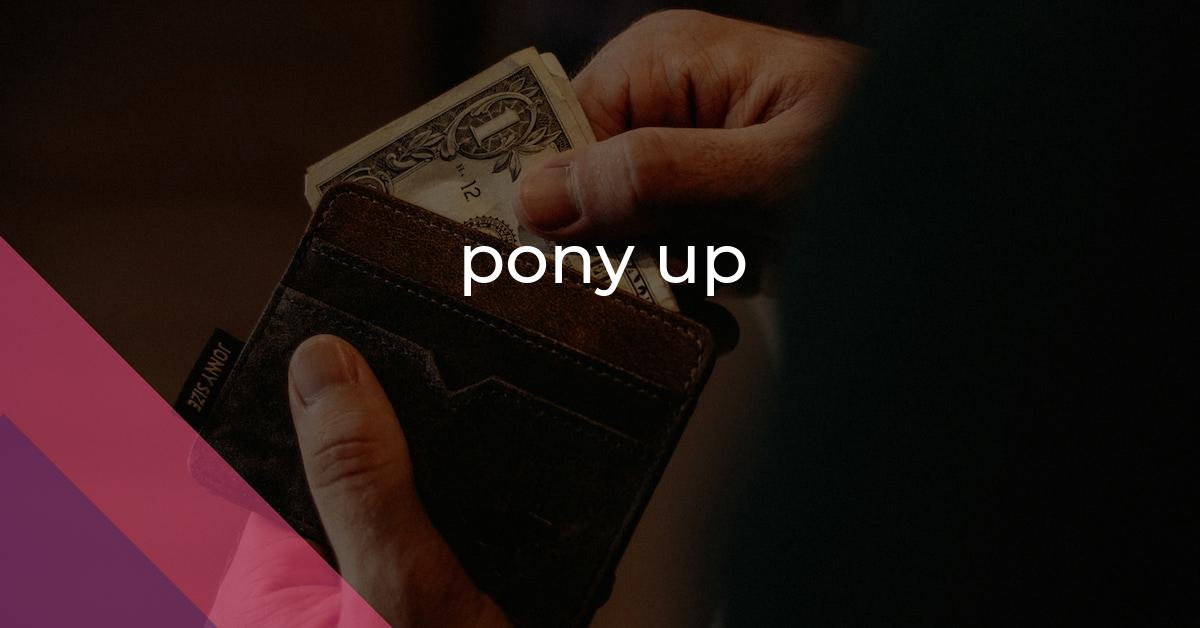pony up: Idiom Meaning and Origin
What does ‘pony up’ mean?
The idiom "pony up" means to pay or give money, especially when it is expected or demanded. It is often used in a casual or slightly aggressive way to urge someone to contribute their share or fulfill their financial obligation.

Idiom Explorer
The idiom "spring for" means to pay for something, often something that is considered a treat or luxury. It implies an act of generosity or indulgence, usually beyond what is expected or necessary.
The idiom "put one's money where one's mouth is" means to back up one's words or claims with actions or financial support.
To "put in pledge" means to offer something valuable as a guarantee or collateral for a loan or an agreement, indicating a commitment or a promise that will be fulfilled. This idiom originates from the practice of using a valuable object as security in exchange for a loan.
The idiom "pull one's weight" means to contribute one's fair share of effort or work in a group or team.
The idiom "pony in the barn" means having something valuable or desirable that is not being used or shown off. It reflects the idea of keeping a pony hidden away in a barn instead of riding it or displaying it for others.
The idiom "play the ponies" refers to the act of betting on horse races, often at a racetrack. It implies engaging in gambling or taking risks in hopes of monetary gains.
The idiom "pitch in" means to join in and help or contribute to a task or activity.
The idiom "pin money" refers to a small amount of extra money that is earned for personal use or personal expenses.
The idiom "pick up the tab" means to pay the bill or expenses for a group of people or oneself, often in a social or business setting.
Decoding Giving Generously
The idiom "pony up" has its roots in the world of horse racing in the United States. It originated in the mid-19th century and is still predominantly used in informal spoken language. The phrase means to pay or contribute money or something of value, often when one is reluctant or unwilling to do so.
The connection between "pony up" and horse racing is evident in the phrase's etymology. Participants in horse races would "pony up" by contributing money or a pony to the prize fund, demonstrating their commitment to the race. As time went on, the phrase's meaning expanded to include any situation where someone is required to contribute money or something of value.
The noun "pony" is at the core of the idiom "pony up." "Pony" refers to a small breed of horse and is derived from the French word "poulenet," meaning "young horse." Originally used to describe young horses, the term gradually evolved to encompass small horses in general. The link between "pony" and money can be traced back to the practice of using ponies or money as wagers in horse races.
The idiom "pony up" is commonly used in American English, particularly in situations involving monetary obligations or when someone is expected to contribute their fair share. It is often employed in contexts such as splitting bills, paying debts, or donating to a cause. The usage of this idiom conveys a sense of urgency or insistence, suggesting that the person should pay promptly and without delay.
In addition to "pony up," there are other related idioms that are worth mentioning. One such idiom is "cough up." Like "pony up," "cough up" also means to pay or contribute money, but it carries a connotation of doing so unwillingly or with reluctance. The phrase suggests that someone is being forced to part with their money or resources, often in a situation where they would prefer not to.
Another related idiom is "play the ponies." This idiom is often used to refer to gambling on horse races. It implies that someone is actively participating in horse race betting and is hoping to win money by making informed wagers. While the phrase "play the ponies" has a different context and usage compared to "pony up," both idioms have their origins in the world of horse racing.
The idiom "paid up" is also related to "pony up." "Paid up" means to have paid the full amount owed or to have fulfilled one's financial obligations. This idiom is often used to describe someone who has completed all necessary payments or has satisfied their debts. While "paid up" doesn't carry the same sense of urgency or insistence as "pony up," it shares a common theme of fulfilling financial responsibilities.
The idiom "pony up" has its roots in horse racing and is still widely used in informal spoken language. It means to pay or contribute money or something of value, often with a sense of urgency or insistence. The phrase is commonly used in American English, particularly in situations involving financial obligations. Other related idioms such as "cough up," "play the ponies," and "paid up" also have connections to the world of horse racing and touch on various aspects of paying or contributing money.
Example usage
Examples of how the idiom "pony up" can be used in a sentence:
- He didn't want to pay for dinner, but eventually he ponied up the money.
- The company asked its employees to pony up donations for the charity fundraiser.
- My friends and I decided to pony up the cash and buy tickets to the concert.
More "Payment" idioms



